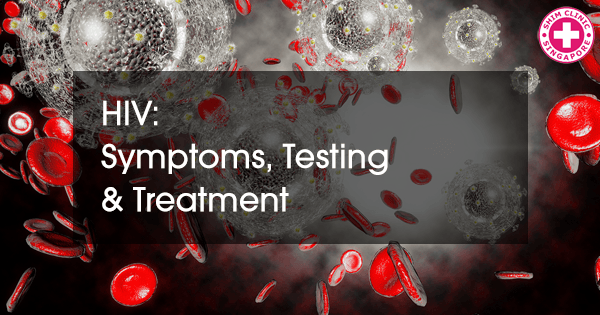What is HIV?
Known as Human Immunodeficiency Virus, HIV is a virus that affects the immune system. The virus attacks the white blood cells in the body making the person’s immune system weak and susceptible to other diseases such as tuberculosis. The number of white blood cells in the blood is called CD4 count.
How is the virus transmitted?
The infection is spread through exchange of body fluids (semen, vaginal discharge, blood) with an infected person. It is also transmitted through blood contact with contaminated blood. This may happen during blood transfusion. A mother may also pass HIV to her unborn baby either during pregnancy or child birth as well as during breast feeding. However, advancement in health technology has made it possible for infected mothers to successfully give birth to HIV free children.
HIV Symptoms
Symptoms may or may not be present especially during the early stages of the infection. However, the infected my display flu-like symptoms. They are:
- Night sweats
- Fever
- Muscle pains
- Sore throat
- Fatigue
- Rash
- Swollen lymph nodes
What are the stages of the infection?
The infection progresses in three stages:
Acute infection
This is the stage where the virus mass produces itself in the body. The CD4 count rapidly goes down. Ultimately your immune system responds in a way that fights the virus bringing the level down. This point is called the virus set point. Here, the CD4 count begins to rise, but it may not return the initial levels before the infection. Doctors will advise infected people to start on ARV treatment at this point.
Clinical latency
During this stage, the virus is active but reduces in number of productivity. This stage does not have symptoms and lasts for a long time with treatment. Without treatment, this stage may last up to 10 years in an infected individual.
AIDS
The HIV virus if not treated leads to a condition known as Acquired Immune Deficiency Syndrome (AIDS). At this stage, an individual cannot get treatment for the condition but can only use medication called antiretroviral (ARV) to control it. Without ARVs, people typically live on an average of 3 years before they die.
How is HIV tested?
The only sure way to know if you are infected or not is by getting an HIV test from any STD testing center. Testing for the infection may also be done alongside testing for other sexually transmitted diseases. The blood test checks for the CD4 count in the blood.
Is HIV treatable?
When HIV progresses to the final stage of AIDS, there is no cure yet but numerous efforts have been done to control the condition and prolong the lives of those infected.
How to prevent A HIV infection?
One needs to abstain from sexual activities to prevent the infection via sexual contact. For the sexually active, they should use condoms during sexual intercourse. They should also go for frequent HIV testing. Even in the case of accidental exposure, occupational or non-occupational, HIV Post-exposure prophylaxis (PEP) treatment when given within 72 hours of exposure has a high chance of preventing an infection.
For women looking to be pregnant, a HIV test is mandatory to reduce chances of transmitting the infection to the unborn child. For those who use drugs, they should avoid sharing needles.

